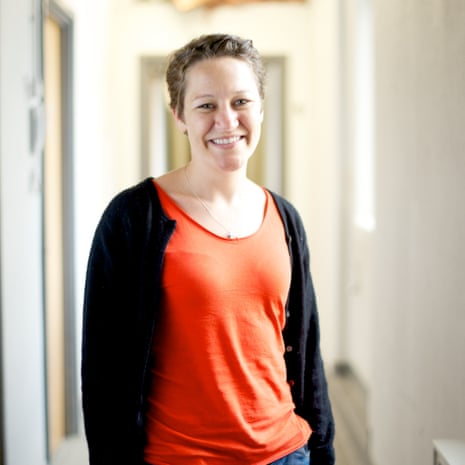What image springs to mind when you hear the word “investor”? Perhaps a man, in a suit, shaking the hand of another man in a suit? (That’s certainly what Google Images offers up.) It’s about bravado and making the big bucks. But that picture is out of date. Women are investing more and more and they’re choosing companies that have a positive impact on the planet, as well as their portfolios.
Olivia Sibony is head of impact crowdfunding at Seedtribe – an investment platform that links socially minded investors with businesses that do good (recent examples include a tool to help small- and medium-sized enterprises give to charity, and a plastic recycling plant). Crucially, the minimum investment is £100, a figure low enough, Sibony hopes, to appeal to people who wouldn’t traditionally invest, particularly millennials and women.
“They are much more socially conscious and aware and they want to create change,” she says. “You no longer need to have a spare £10,000 or £20,000 to become an investor, you can make a difference with a few hundred pounds, and also make a return.
“At the end of the day, money is not the goal, but money is the common language. For us, a business has to pay the bills, but the purpose of that business has to be impact.”
This means that when companies apply to join Seedtribe, they have to prove their potential for profit as well as their social credentials. It’s a rigorous process, and only a tiny fraction have made it through since the platform launched in 2017; Sibony rejects about 99% of pitches. What she’s looking for, she explains, is simple but hard to find: profit-driven businesses that truly address social or environmental challenges.
“We do get some people trying to greenwash the impact side,” she continues. “Someone came to me the other day with a pitch about how important it was for people’s mental health to have stations all over London to charge their mobile phones, because they suffer from anxiety if their phone runs out of battery.
“That’s not impactful, quite the opposite. There could be a strong team and a good business model – but if it’s not going to make the world a better place, it gets rejected.”
Sibony is able to speak from experience – she was a co-founder of the sharing economy food startup Grub Club and says she “made every mistake under the sun” on the way to becoming a success. The networks she established in that time have helped to get an impressive gender balance of entrepreneurs approaching Seedtribe, however, with around 30% to 40% of pitches now coming from female-led companies. The vast majority of the site’s investors, however, are still male (she estimates around 90%).
“I guess it’s logical, historically, but it doesn’t have to be that way,” she says. “I’m focusing a lot of my energy on changing that and bringing more female investors on to the platform.
“It’s not my sole purpose – my ultimate aim is to get investment for the best possible businesses that are impactful – but unless we have a better diversity of investors, we are missing out on opportunities for really impactful businesses.”
And the women she’s speaking to are enthusiastic about the focus on impact, she continues. Although women have traditionally been regarded as more cautious than men when it comes to investing, Sibony says she’s finding that they’re happy to take bigger risks when they are contributing to projects for the greater good.
But, she explains, the initial conversations with female investors often require a different approach to those with men. Many women are turned off by the word investment, thinking of it as something that’s not for them. Instead, she says, it can be helpful to link investment opportunities to the story of the company.
“Semantics are so important,” she says. “When you reposition it and say: ‘I know this person who is setting up this great business and would love some mentoring and guidance and a bit of cash to help boost it’, they feel excited about being a part of it. That’s investing, of course, but they feel that it’s something they can contribute to.”
Sibony uses the UN’s 17 sustainable development goals as a framework for judging impact, and she says that they serve as a constant guiding force for the areas that Seedtribe’s businesses should be addressing. But it’s the fifth goal – gender equality – that she’s most passionate about.
“As women, we have an incredible power to address challenges in a different way,” she says. “The more we can empower women and build that confidence, the more I think everything can change. Now that we have a louder and louder voice, we have an amazing opportunity to make that change and I’m honoured to be part of it.”
